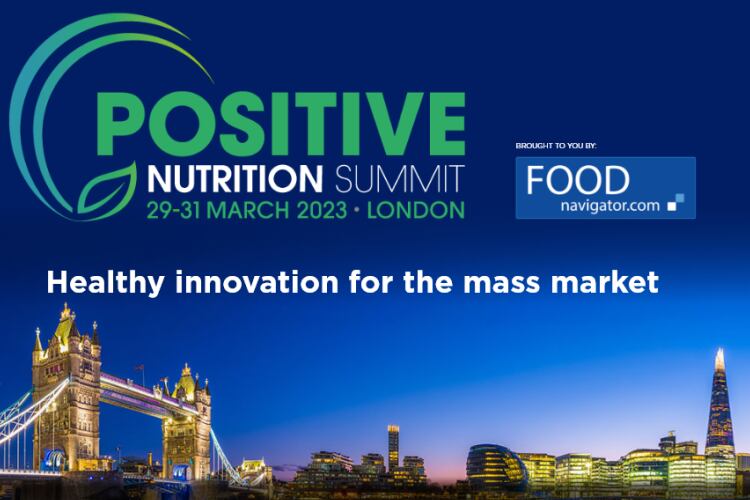How will food and beverage makers across Europe be impacted by regulation in 2023?
In the UK, manufacturers are laser-focused on incoming junk food laws, while in the EU Novel Foods regulation remains a sticking point for makers of novel proteins.
Other trends expected to impact operators relate to food safety in the aftermath of COVID-19 and Brexit, lawyers from global law firm Squire Patton Boggs tells FoodNavigator.
Policies target fat, sugar, salt, and calories
In Europe, overweight and obesity are among the leading causes of death and disability. Recent estimates suggest they are responsible for more than 1.2m deaths annually – equating to more than 13% of total mortality in the region.
In an effort to improve public health, policymakers around the globe are turning their attention to specific nutrients – notably fat, sugar and salt – and the overall calorie content of food and drink products.
Latin America has led the way in the field of front-of-pack (FOP) nutritional labelling, with Chile prohibiting school sales and daytime advertisement of any product classed as high in sugar, salt, saturated fats or calories. Peru, Uruguay, and Mexico have since introduced similar warning labels.
In the UK, regulators are also placing more attention on foods that are high in fat, sugar and salt (HFSS). In October last year, new rules limiting the location of unhealthy foods in shops came into play. Others were delayed: rules banning multibuy deals on HFSS food and drink – including buy one get one free (BOGOF) – were postponed, as was a ban on HFSS adverts being broadcast on TV before 9pm as well as paid-for adverts online.

These laws have been ‘pushed down the road a couple of times’, explained Nicola Smith, a UK-based regulatory compliance expert at Squire Patton Boggs.
But food and drink makers should get prepared to reformulate HFSS products if that is their strategy, she suggested. “They were postponed. They haven’t been cancelled. We’ll see them back on the agenda later in 2023.”
Indeed, it is expected that rules banning multibuy deals on HFSS food and drink products will come in later this year, while the 9pm watershed has been pushed back until early 2024.
Any movement on Novel Foods laws?
In Europe, novel foods are classified as those not used for human consumption to a ‘significant degree’ before 15 May 1997, and as such, require pre-market approval from the European Food Safety Authority (EFSA).
While novel foods are approved via this process in Europe, a growing number of food tech start-ups are first passing through other, less stringent, regulatory processes. In Singapore, for example, the first cultivated meat product received pre-market authorisation back in 2020. In the US, a cultivated meat product successfully completed the Food and Drug Authorisation’s (FDA) pre-market safety review last year.
No cultivated meat product has been approved in the EU or UK. In fact, FoodNavigator understands that no company (as of September 2022) has even submitted a novel food dossier on cell-based meat to either EFSA or the UK’s Food Standards Agency (FSA).
While there is no ‘new legislation’ to speak of in Novel Foods law, Smith has observed there are also new trends to watch out for in this space, whether that be in how authorities are approaching the authorisation process, or in the variety of novel food itself.
At the moment, the focus is on cultivated meat and insects, the lawyer suggested. Now, with the UK having left the EU, business operators will need to obtain regulatory approval from both EFSA and the FSA in order to market in both geographies.
Some novel foods in this field have had regulatory success. Four insects have received a positive assessment by EFSA for human consumption, the most recent being the lesser mealworm (Alphitobius diaperinus).
Squire Patton Boggs partner Dr Christofer Eggers, who works out of Germany, is optimistic more novel foods will receive the green light in the future. “There will be novel foods, and they will not be only insects. We will see a new discussion on ‘green’ biotech and on ‘green genetics’, because it’s a necessity to work on insects, on algae, and on fungi given how fragile [conventional] food supply chains have been in recent years.”

Last month marked three years since the UK withdrew from the EU, which does beg the question: could the UK restructure its Novel Foods authorisation process to make it easier for makers of new proteins to enter the market?
The so-called Brexit Freedoms Bill, which was proposed in 2022, could well receive royal assent in April or May of this year. “This would mean that retained EU law in Great Britain would no longer just sit in the statute book like it has since Brexit,” explained Smith.
“The FSA will have to look at each bit of legislation derived from the EU that governs food law, an decide whether it should remain as law in the UK – and therefore implemented into national legislation – or whether it should be repealed, revoked, or amended.”
The legal expert believes this will be conducted in a staged approach, meaning limited amendments in the short-term, with the potential for greater reform between 2024 and 2026. At that point, she told this publication, some divergences between EU and UK might occur.
Smith doesn’t expect Novel Foods regulations to be the first to be addressed, however. Rather, the legal expert says initial reform is more likely to be focused on port controls and border operations.
Food safety and quality threatened by COVID-19 and Brexit
Another regulatory trend observed by lawyers at Squire Patton Boggs lies in food safety and quality, both of which have been impacted by recent events: the COVID-19 pandemic and Brexit.
Another major trend across the regulatory landscape is sustainability. To read how ‘green’ regulations are impacting food and beverage, click here.
“I’ve seen commentary this year from the FSA, amongst others, that there aren’t sufficient local authority resources for effective enforcement,” Smith told FoodNavigator. This is a concern for food safety inspections, particularly following the coronavirus pandemic.
“The lack of inspections during COVID means there are a number of businesses that haven’t been inspected properly for some time.”
Another concern for regulators lies relates to the UK’s withdrawal from the EU. “There is a risk of unsafe food coming into the UK due to the delays in establishing import controls,” explained the legal expert.
“I think we’re going to see more [regulatory focus] on these two areas and more enforcement activity in 2023.”
Keen to hear more about HFSS reformulation? Come join us at our upcoming face-to-face event in London Positive Nutrition 2023: Healthy Food for the Mass Market.
Over the course of three days (29-31 March), FoodNavigator journalists will be joined by a host of experts from dieticians and nutritional scientists to food entrepreneurs and big brands to examine how the latest nutritional science and technology can meet evolving consumer demands.
For more information or to register, click HERE.






